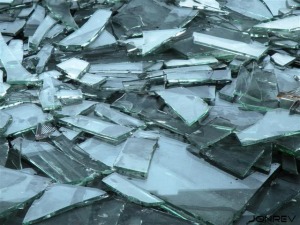Everything we hear is an opinion, not a fact. Everything we see is a perspective, not the truth
–Marcus Aurelius
What can one say that hasn’t already been said about Jonestown and Peoples Temple? As a filmmaker researching Peoples Temple and Jonestown for a documentary film project, I’ve read a lot of articles on this site, I’ve read a lot of books, and I’ve talked with many former members ,but what strikes me the most is that no matter how deep one ventures into the story, one always feels like they’ve just scratched the surface. It’s like a vortex that sucks you in and it’s difficult to navigate between moments of searing empathy and moments of uncomfortable judgment, the kind of judgment that happens when one is trying so hard to understand, why? Why did so many people die that day? Why did things escalate the way they did? Why…
Many members of Peoples Temple have been disappointed in most of the TV shows and films of the past that have featured the subject, and while I agree – especially as I continue to learn more about PT and Jonestown – I’ve realized that my expectations for these programs was too great: I wanted an absolute answer, a definitive summation of what this historical moment was all about. However, that’s the wrong expectation to have.
Let me explain.
 When I try to think of a visual metaphor for PT and Jonestown, what comes to mind is shattered glass. As you pick up the pieces of what remains, the individual pieces don’t look as if they belong together. But upon closer observation, you can see they are each part of a whole, each with their own story to tell.
When I try to think of a visual metaphor for PT and Jonestown, what comes to mind is shattered glass. As you pick up the pieces of what remains, the individual pieces don’t look as if they belong together. But upon closer observation, you can see they are each part of a whole, each with their own story to tell.
Therefore, instead of approaching the research and the film from a perspective of why, I’ve switched gears and approached it from researching the many different points of view.
It’s important to note that films and television shows are actually a creative medium that doesn’t lend itself to revealing an absolute truth, but rather explores slivers of truths as told through the perspective of a character or characters. In the case of documentary films and series, these “characters” are usually real people who experienced the events first hand: everyone is speaking to speaking their truth of the experience. And while a second character or interview subject may have had a totally different experience and even disagree with the first, those differences don’t take anything away from their respective stories. Both viewpoints are valid, and in fact, both contribute to a greater understanding of the whole.
I have read many books on Jonestown and Peoples Temple, all with starkly different perspectives on what it was, what it meant, and why so many died and I have appreciated all of them equally. It is my hope that all members will continue to share their experiences of Peoples Temple, whether it’s through speaking events, books, articles, film and TV projects or even through neighborly conversations. All of these stories shed a different light on a tragedy that should continue to be studied and talked about, for within it lies great lessons in sociology, religious studies, history, and last, but not least, humanity.
(Melissa Thrasher is a producer/director at c.2k Communications. She can be reached at melissa@c-2k.com.)